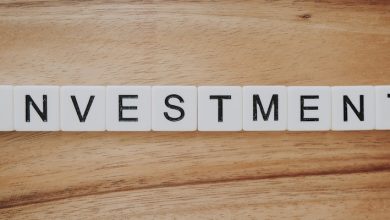The Role of DAOs in DeFi

- Understanding the concept of DAOs in DeFi
- Exploring the benefits of decentralized autonomous organizations in the DeFi ecosystem
- Challenges and opportunities for DAOs in decentralized finance
- The role of governance tokens in DAOs within DeFi platforms
- Case studies of successful DAOs in the DeFi space
- Future implications of DAOs on the growth of decentralized finance
Understanding the concept of DAOs in DeFi
Decentralized Autonomous Organizations (DAOs) play a crucial role in the decentralized finance (DeFi) ecosystem. DAOs are essentially self-governing entities that operate through smart contracts on the blockchain. These organizations enable community members to participate in decision-making processes and governance without the need for a centralized authority.
DAOs in DeFi are designed to be transparent, secure, and efficient. By utilizing blockchain technology, DAOs ensure that all transactions and decisions are recorded on a public ledger, making them immutable and resistant to censorship. This level of transparency builds trust among participants and fosters a more inclusive and democratic ecosystem.
One of the key features of DAOs in DeFi is their ability to manage funds and execute transactions autonomously. Through smart contracts, DAOs can automate various processes such as voting on proposals, distributing rewards, and executing trades. This automation reduces the need for intermediaries, streamlines operations, and minimizes the risk of human error or fraud.
Furthermore, DAOs empower individuals to have a direct impact on the projects and protocols they are invested in. By holding governance tokens, participants can vote on key decisions such as protocol upgrades, asset listings, and fee structures. This level of community engagement not only enhances decentralization but also aligns the incentives of stakeholders towards the long-term success of the ecosystem.
Exploring the benefits of decentralized autonomous organizations in the DeFi ecosystem
Decentralized Autonomous Organizations (DAOs) play a crucial role in the decentralized finance (DeFi) ecosystem by providing a new way for participants to interact and make decisions without the need for traditional intermediaries. DAOs are essentially self-governing entities that operate through smart contracts on the blockchain, allowing for transparent and trustless decision-making processes.
One of the key benefits of DAOs in the DeFi ecosystem is their ability to promote greater decentralization. By removing centralized authorities, DAOs empower community members to collectively govern the platform, vote on proposals, and allocate resources in a democratic manner. This decentralization helps to prevent single points of failure and reduce the risk of censorship or manipulation.
Another advantage of DAOs is their efficiency in executing transactions and managing funds. Since DAOs operate on the blockchain, transactions are executed automatically according to pre-defined rules encoded in smart contracts. This not only eliminates the need for manual intervention but also reduces the risk of human error and fraud.
Furthermore, DAOs enable a more inclusive and open financial system by allowing anyone to participate and contribute to the governance of the platform. This inclusivity helps to foster innovation and diversity within the DeFi ecosystem, leading to a more robust and resilient financial infrastructure.
Overall, DAOs are revolutionizing the DeFi landscape by providing a decentralized and transparent framework for decision-making and governance. As the DeFi ecosystem continues to grow and evolve, DAOs will play an increasingly important role in shaping the future of finance.
Challenges and opportunities for DAOs in decentralized finance
Decentralized Autonomous Organizations (DAOs) in decentralized finance (DeFi) face a myriad of challenges and opportunities as they navigate the rapidly evolving landscape of blockchain technology. DAOs, which operate without a central authority and are governed by smart contracts, have the potential to revolutionize the way financial services are accessed and managed.
One of the main challenges facing DAOs in DeFi is regulatory uncertainty. As governments around the world grapple with how to regulate cryptocurrencies and blockchain technology, DAOs must navigate a complex and ever-changing legal environment. Ensuring compliance with relevant laws and regulations while maintaining the decentralized nature of their organizations is a delicate balancing act.
Another challenge for DAOs in DeFi is security. With the proliferation of hacks and exploits in the DeFi space, DAOs must prioritize security measures to protect their assets and ensure the integrity of their platforms. Implementing robust security protocols and conducting regular audits are essential steps for safeguarding against potential threats.
Despite these challenges, DAOs in DeFi also present numerous opportunities for innovation and growth. By leveraging blockchain technology, DAOs can streamline processes, reduce costs, and increase transparency in financial transactions. Additionally, DAOs have the potential to democratize access to financial services, allowing individuals around the world to participate in the global economy.
The role of governance tokens in DAOs within DeFi platforms
Governance tokens play a crucial role in decentralized autonomous organizations (DAOs) within decentralized finance (DeFi) platforms. These tokens grant holders the right to vote on proposals and decisions related to the DAO. By owning governance tokens, users can actively participate in shaping the future direction of the DeFi platform. This democratic process ensures that the community has a say in important matters such as protocol upgrades, fee structures, and asset listings.
Furthermore, governance tokens incentivize active participation and engagement within the DeFi ecosystem. Holders of these tokens are motivated to contribute positively to the platform to increase the value of their holdings. This alignment of incentives helps ensure the long-term success and sustainability of the DAO. Additionally, governance tokens can also be used to stake in liquidity pools or participate in yield farming, allowing users to earn rewards while actively participating in governance decisions.
In summary, governance tokens are a key component of DAOs within DeFi platforms, providing users with a voice in decision-making processes and incentivizing active participation in the community. By holding governance tokens, users can contribute to the growth and development of the platform while also reaping potential rewards through staking and yield farming activities. This combination of governance and financial incentives creates a powerful mechanism for driving the success and innovation of DeFi platforms.
Case studies of successful DAOs in the DeFi space
There have been several successful DAOs that have made their mark in the DeFi space, showcasing the power and potential of decentralized governance. These case studies highlight how DAOs can effectively manage funds, make decisions, and drive innovation in the decentralized finance sector.
- One notable example is MakerDAO, which operates the decentralized stablecoin Dai. MakerDAO allows users to lock up collateral in smart contracts to generate Dai, which is pegged to the US dollar. The DAO’s governance token holders vote on changes to the protocol, such as adjusting collateral requirements or interest rates, ensuring the stability of the Dai stablecoin.
- Another successful DAO is Aave, a decentralized lending platform that enables users to borrow and lend a variety of cryptocurrencies. Aave’s governance token holders have the power to vote on proposals to improve the protocol, such as adding new assets or adjusting borrowing rates. This decentralized governance model has helped Aave become one of the leading DeFi platforms in the space.
- Yearn.finance is yet another example of a successful DAO in the DeFi space. Yearn.finance is an automated yield farming platform that helps users maximize their returns on cryptocurrency investments. The DAO’s governance token holders can vote on strategies to optimize yield farming, as well as other proposals to enhance the platform’s functionality.
These case studies demonstrate the versatility and effectiveness of DAOs in the DeFi ecosystem. By allowing for decentralized decision-making and governance, DAOs empower users to have a say in the direction and development of the platforms they use. As the DeFi space continues to grow and evolve, DAOs are likely to play an increasingly important role in shaping its future.
Future implications of DAOs on the growth of decentralized finance
Looking ahead, the future implications of Decentralized Autonomous Organizations (DAOs) on the growth of decentralized finance (DeFi) are substantial. As DAOs continue to gain traction in the DeFi space, they are expected to revolutionize the way financial systems operate. DAOs have the potential to increase transparency, security, and efficiency in DeFi platforms.
One of the key benefits of DAOs is their ability to eliminate the need for intermediaries in financial transactions. By using smart contracts and blockchain technology, DAOs can automate processes that were previously manual, reducing the risk of human error and fraud. This increased automation can lead to cost savings for DeFi platforms and their users.
Furthermore, DAOs can enable greater community participation in decision-making processes within DeFi projects. Token holders can vote on proposals and changes to the platform, ensuring that the interests of the community are represented. This level of decentralization can help build trust among users and strengthen the overall governance of DeFi platforms.
Overall, the integration of DAOs into DeFi has the potential to democratize finance and make it more accessible to a wider range of users. As DAOs continue to evolve and innovate, they are likely to play a significant role in shaping the future of DeFi and driving its growth in the years to come.



